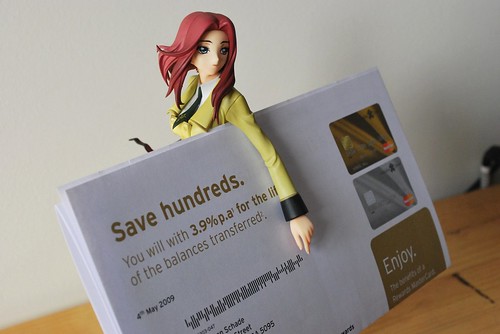Don’t Be Confused About Credit Cards; Read This
Consumer advice is valuable with regard to charge cards. This article has many suggestions on how to understand and utilize charge cards successfully. Many people who have credit cards to don’t know how to utilize them correctly, and many wind up in financial straits.
Make a realistic budget plan. You should not think of your credit card limit as the total amount you can spend. Avoid interest payments by knowing what you can afford and paying off your card every month.
Retain copies of all receipts for credit card purchase made on the web. Keep these receipts and compare them with your statement to make sure it is the correct amount. In the event of a discrepancy, call the credit card company and the retailer at your earliest possible convenience to dispute the charges. Doing so helps to prevent overcharges on purchases.
Before you get something online with a credit card, be sure that you can trust the seller. If there is a telephone number on the site, call the number to be sure it is legitimate. You should avoid any merchant that doesn’t list an actual physical address. That is a big red flag.
Credit Score
Check your credit score regularly. A good credit score is considered by credit card companies to be over 700. Make good use of your credit to maintain this level, or reach it if you have not yet gotten there. Keeping your score at 700 or better gives you the chance to take advantage of offers for the lowest interest rates.
Understand that the credit card interest rate you currently have is always subject to change. Credit card issuers have several interest rates they can use at their discretion. If your interest rate is higher than you would like it to be, make a call and ask the bank to reduce it.
Try not to close your accounts. Closing an account can hurt your credit score instead of helping. When you close accounts, you reduce how much credit you have. This then closes the gap between the credit you can borrow and how much you currently owe.
Debit Cards
Avoid prepaid debit cards when considering secured cards. These cards are debit cards, and as a result, they are not reported to the large credit bureaus. Oftentimes, there are extra fees charges for this. Instead of using a debit, your best bet is to put some money into an account and get yourself a secured card to use. This will help you beef up your credit score as an added bonus.
Keep a credit card account open for as long as you can, this is very important to remember. You should avoid switching to different accounts, if possible. The total amount of time you have had credit available to you is a factor in your credit score. Keeping accounts open whenever possible is one element of building a good credit history.
Avoid exaggerated income statements when applying for a card, just to get a higher limit. Sometimes, a credit card company won’t verify your income, and give you a limit that is more than you can afford. This is a very quick way to get into a large amount of debt.
Any bank cards that you have that you do not use, should be closed. Identity theft is much more likely if you leave these unused accounts open. Some credit card companies charge an annual fee even if you are not making any charges against your account.
Make sure to monitor your transactions regularly. You could register for mobile alerts if they are offered to you. This gives you the opportunity to report any irregular activity as soon as possible after it occurs. If you see anything questionable on your account, contact the credit card company immediately, and also contact the police if necessary.
Go through old credit accounts and close the ones you don’t use. Terminating these old accounts can protect you from identity theft that may go unnoticed due to the lack of use of the cards. If you don’t want to use the account anymore, you can still close it if there’s an unpaid balance on it. You can still pay off its balance until it’s all repaid.
As stated in the beginning of this article, it’s just way too easy to get into financial hot water when using bank cards. Having a couple of extra cards and making a few extra purchases can lead to real issues quickly. This article should prepare you for avoiding these types of situations.



